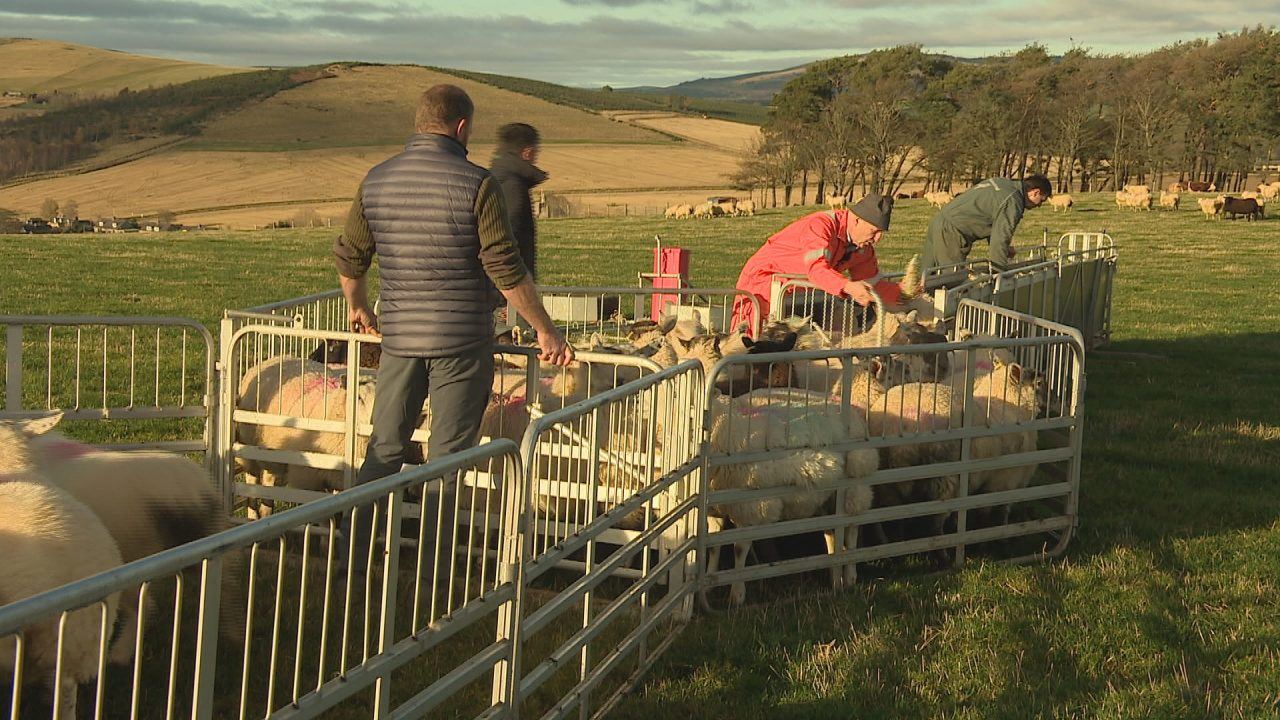It’s usually difficult to get more than one farmer to speak for a television interview – such is the nature of their job, aligning their busy work schedule alongside the day’s news agenda.
But six farmers came forward to tell me their concerns about inheritance tax changes in the Chancellor’s Budget announcement last month.
So strong are their feelings about the effect the measures could have on their sector that words like “catastrophic”, “disgrace” and “betrayal” were among the most used in our conversations.
The proposals they are most concerned about are changes to agricultural property and business relief.
Under Labour’s proposals, farms passed to a son or daughter will be subject to much higher taxes than in previous administrations – causing many to fear that farmers will become priced out of the industry.
We conducted most interviews for our report on top of the hill at Alan Simpson’s farm in Insch, in between moving his sheep into their new field.
Alan, a second-generation farmer, speaks to me while holding his grandson Alec, who is nearly two-years-old.
He said: “This is a blow, my dad worked hard to give me the opportunity and I’ve worked hard to be able to give the opportunity to farm for my children.
“We’ve been pushed in recent years to be more economical, to be more competitive to supply food at a reasonable price, which means we’ve had to buy more land to be able to turn a profit.
“And now it’s like the next generation will have to buy it all over again.
“If people come out of farming it’s likely we’ll have to rely on more imports, and that food isn’t as good as the quality we produce here.”
Chancellor Rachel Reeves said the tax changes applied to family farms and businesses will “help protect family farms”.
She said that’s why the first £1m worth of assets will get a 100% tax relief, but a 20% tax will apply past that threshold.
Previously, the taxes to pass on a family farm were minimal.
Farmers say the £1m value is far too low a figure, and doesn’t even begin to cover the value of land required for a profitable farm.
Mike Davis, an arable farmer based near Insch in Aberdeenshire explained: “Our farm is now up to about 500 odd acres, and that’s just about big enough to give someone a modest income of around £40-50,000 including the subsidies we get a year.
“To use the words of the government, it would be a working person’s income.
“But you slap on inheritance taxes, which in our case would be around £500,000, then you can’t eat and pay off the tax bill.”
“So, then the only option would be to sell off some of your land, but then you don’t have a profitable farm.”
In response to the latest proposals a UK Government spokesperson said: “This budget took the difficult decisions to fix the public services crumbling across the United Kingdom, including Scotland, and address the £22bn fiscal black hole inherited from the previous government.
“With 40% of agricultural property relief going to the 7% of wealthiest claimants, we made the decision to ensure the relief is fiscally sustainable.
“Around 500 claims each year will be impacted and farm-owning couples can pass on up to £3m without paying any inheritance tax – this is a fair and balanced approach.”
The northeast of Scotland is important for the country’s food production.
The area has almost half of Scotland’s overall crop production, two thirds of its pigs and a quarter of the country’s beef cows.
Murdoch Duncan’s family has been farming in Aberdeenshire for more than 70 years he fears what the changes could mean for the wider rural economy: “The family farms are the backbone of the sector.
“If you look at all the industries that are tied to farming, the produce that ends up in your loaf of bread, or the meat you eat, there’s people right along the way before it ends up on the shelves.
“So, if we stop producing these people working along the supply chain are going to be affected too, never mind the people who provide farm machinery and fix it, the accountants that help us with our books.”
“They say they want to help the working man, but I don’t understand how this will.”
Northeast farmers will be among a 10,000-strong protest at a rally in London on Tuesday, calling for an urgent rethink of what’s being proposed.
It’s believed to be the largest such farming demonstration in recent years.
Those I spoke to warn there will be big consequences for the country’s food production if Labour’s proposals are not reversed, and say they’ll continue to fight against them.
Follow STV News on WhatsApp
Scan the QR code on your mobile device for all the latest news from around the country






























